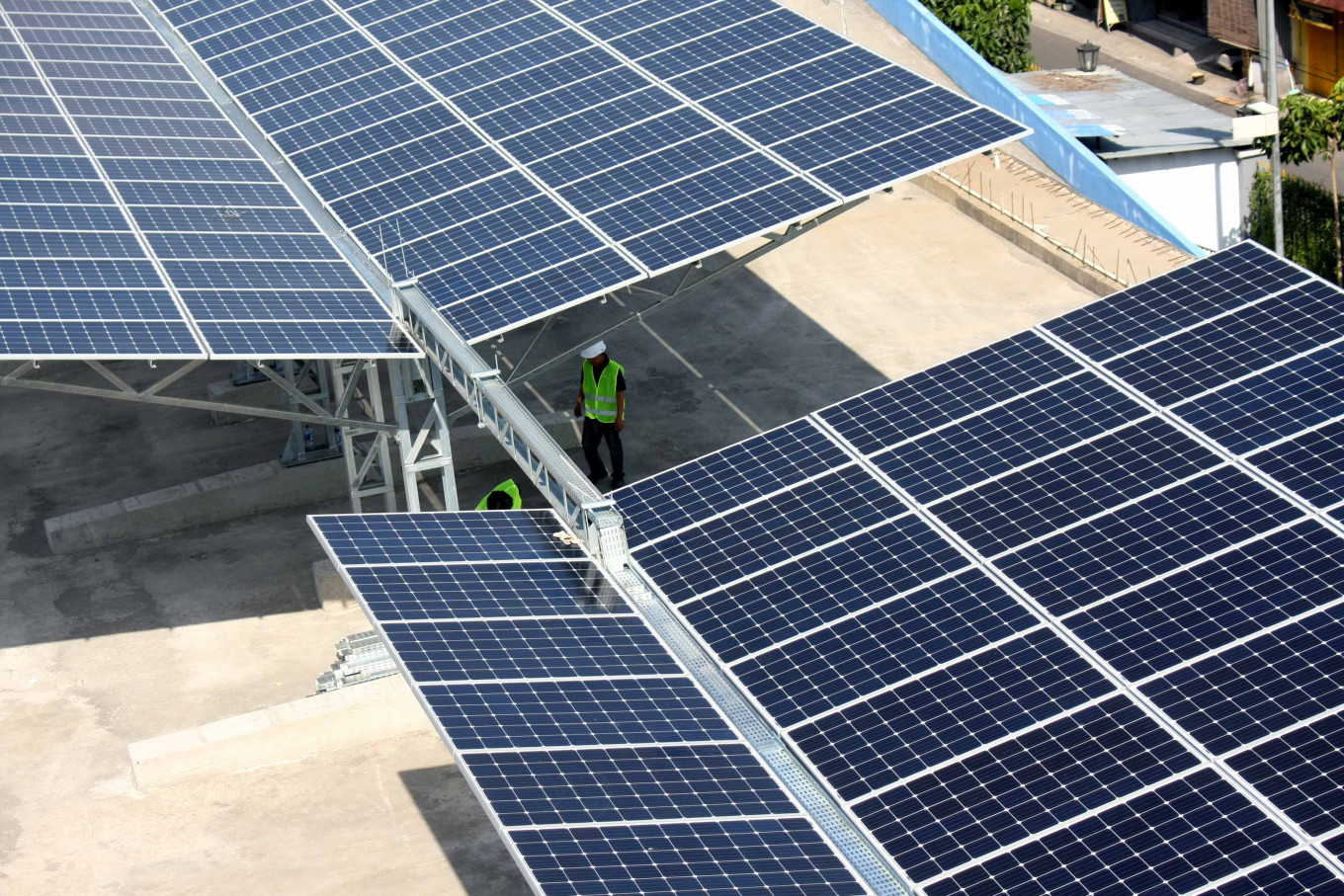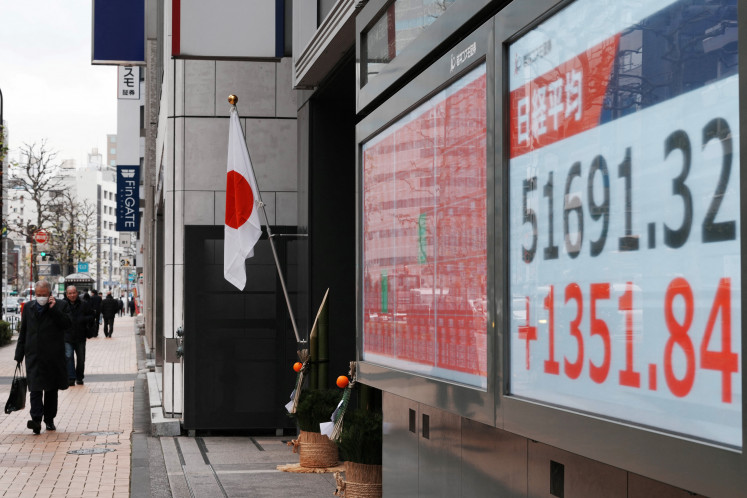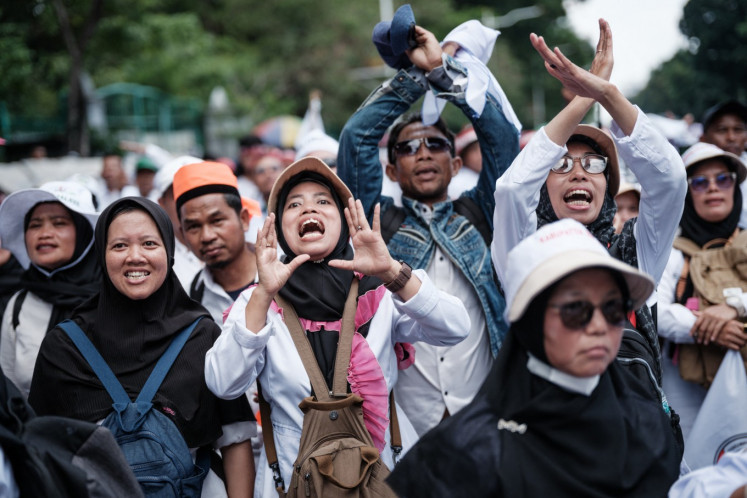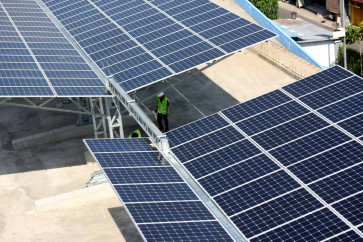Popular Reads
Top Results
Can't find what you're looking for?
View all search resultsPopular Reads
Top Results
Can't find what you're looking for?
View all search resultsAnalysis: Jokowi issues renewable energy regulation with unattractive pricing scheme
Presidential regulation (Perpres) No. 112/2022 on renewable energy, which had been teased since last year, is finally out. However, the reaction to the regulation has been bleak.
Change text size
Gift Premium Articles
to Anyone
 SURYA PANEL: Officers check the installation of solar panels in Terminal Tirtonadi, Surakarta, Central Java, Monday (7/31). The Ministry of Transportation project is capable of producing 500 kilo volt amperes (kVA) or 500,000 watts of electricity as an effort to save electricity in terminal operations. (JP/Ganug Nugroho Adi)
SURYA PANEL: Officers check the installation of solar panels in Terminal Tirtonadi, Surakarta, Central Java, Monday (7/31). The Ministry of Transportation project is capable of producing 500 kilo volt amperes (kVA) or 500,000 watts of electricity as an effort to save electricity in terminal operations. (JP/Ganug Nugroho Adi)
P
residential regulation (Perpres) No. 112/2022 on renewable energy, which had been teased since last year, is finally out. However, the reaction to the regulation has been bleak. There is no feed-in tariff and the ceiling price set for electricity purchased by state-owned electricity company PLN is lower than expected, disappointing renewable energy developers.
Indonesian Solar Energy Association (AESI) executive director Fabby Tumiwa said the ceiling price set in the regulation allowed some room for solar power plant developers to gain some margin. However, it would remain difficult for developers to meet the local content requirements (TKDN), especially for solar photovoltaic (PV) modules.
Renewable energy developers have been struggling to meet the 40 percent TKDN under the existing electricity pricing scheme. The local solar PV component price is still more expensive than its imported counterparts while the electricity offtake price is low, making solar power projects economically unfeasible, especially for smaller developers unable to achieve economies of scale and lacking access to capital amid rising interest rates and inflation.
A more fundamental issue with the regulation is the removal of the feed-in tariff from the draft regulation. Article 5(1) in the issued regulation emphasizes negotiation between PLN and the power producers, with or without considering the power plant’s location, a process that takes time and is full of uncertainty. This will hamper projects that require massive investment, such as geothermal power plants.
Indonesian Geothermal Association (API) chairman Prijandaru Effendi said his side was in no position to conduct business-to-business (B2B) negotiation with PLN and was instead waiting for direct appointment to speed up the project development because negotiations would take time. He insisted an electricity tariff that followed PLN’s ability to pay would not cover geothermal project development costs, emphasizing the need for power purchase agreement to guarantee the economic feasibility of geothermal projects.
Beyond pricing issues, another controversial point in the regulation is the exception to the prohibition of new coal-fired power plant (PLTU) construction. This exception will impose challenges for the country in reaching its Nationally Determined Contribution (NDC) commitment to become carbon neutral by 2060 and the 2021-2030 long-term electricity procurement (RUPTL) target to source 51.6 percent of its new power plant installation from new and renewable energy sources.
The exception, stated in Article 3(4), applies for PLTU installation plans included in the RUPTL prior to the issuance of the regulation. In addition, the exception also applies to PLTUs integrated with industries that add value to the country’s resources or are included in the National Strategic Plan to create jobs or boost economic growth, as well as to those committed to reducing greenhouse gas emissions at least 35 percent during the first 10 years of operations and operating until 2050 at the latest.


















